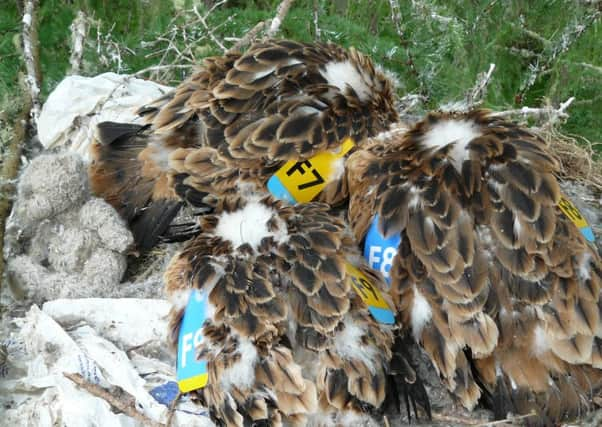Too many birds of prey killed illegally, says RSPB Scotland


In total, 468 birds of prey were poisoned, 173 were shot and 76 were caught in illegal traps, according to the review.
There were also seven attempted shootings. The figures include 104 red kites, 37 golden eagles, 30 hen harriers, 16 goshawks and 10 white-tailed eagles.
Advertisement
Hide AdAdvertisement
Hide AdRSPB Scotland’s specialist investigations team has been meticulously documenting the illegal killing of birds of prey in Scotland for 20 years to provide a thorough public record of the scale, location and methods of wildlife crime. This effort, supported by an extensive body of peer reviewed science, has shown the severe impact of criminal activities on some of Scotland’s most iconic and vulnerable bird species.
The report deals only with incidents that have been confirmed as involving criminal activity, either by post mortem at a government laboratory or by reliable witnesses. The number of birds actually killed will therefore be much higher.
In a further 171 incidents, poison baits and/or non-bird of prey victims of poisoning were found, including 14 domestic cats and 14 dogs. There were also an additional 134 incidents where, although no victim was recovered, clear attempts had been made to target raptors - through the use of illegal traps for example.
Director of RSPB Scotland, Stuart Housden, said: “We recognise that many landowners and their staff have helped with positive conservation efforts for birds of prey, particularly with reintroduction programmes for white–tailed eagles and red kites, and that the majority operate legitimate shooting businesses; but there are still far too many who do not act responsibly, and there will be no improvement in the conservation status of raptors until all land management is carried out wholly within the law.”